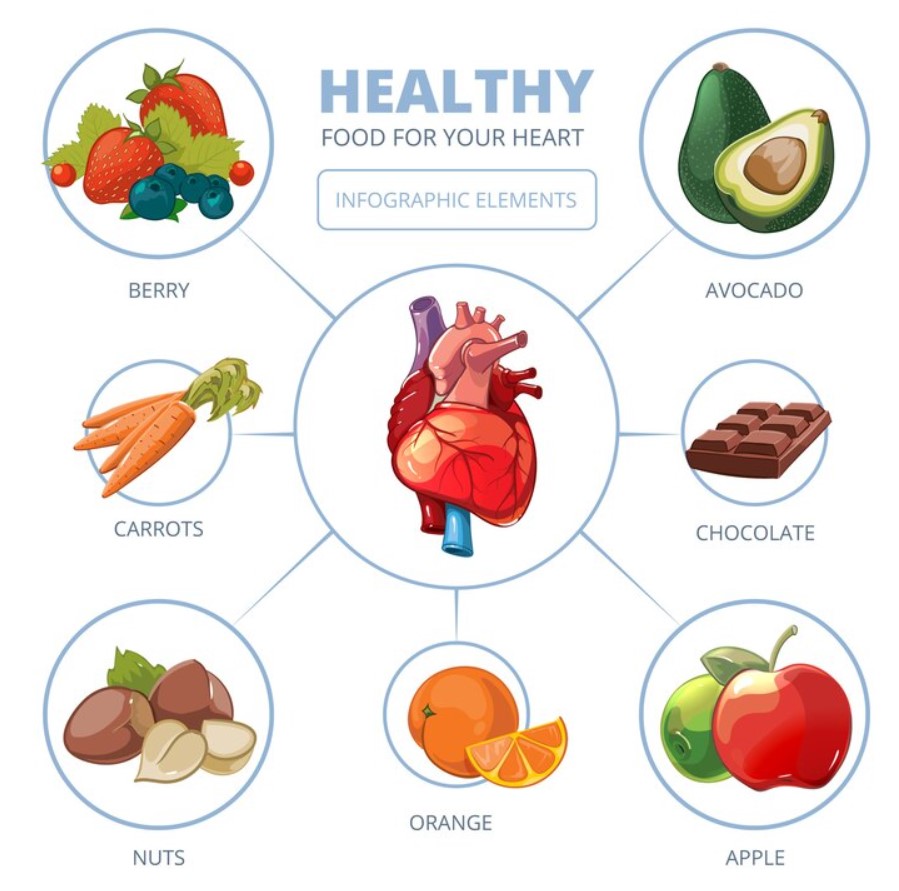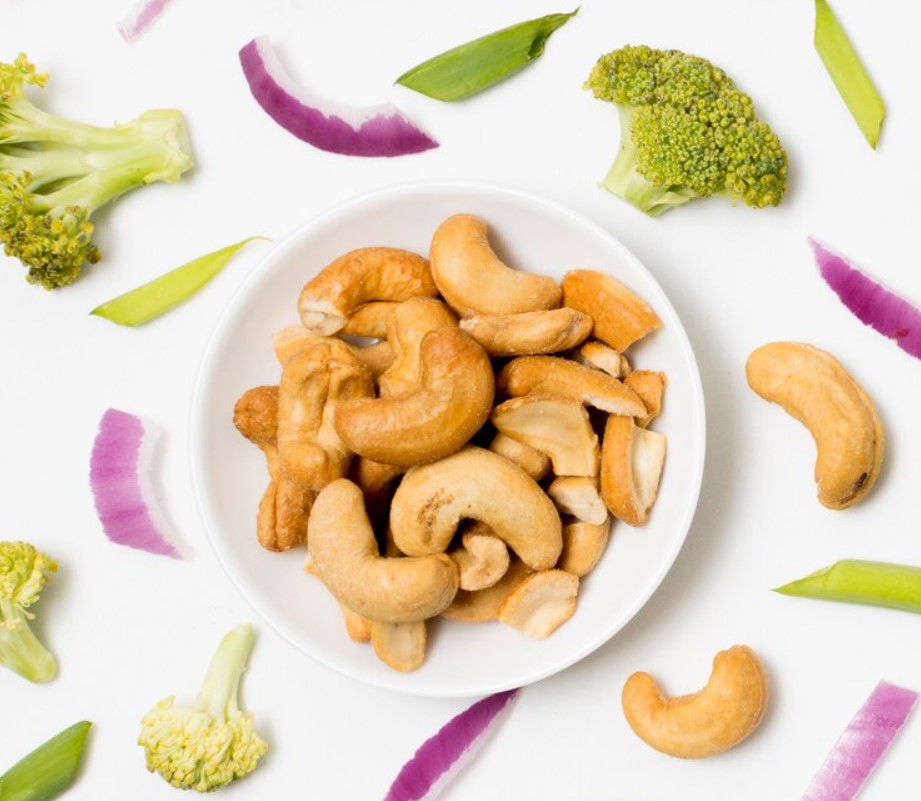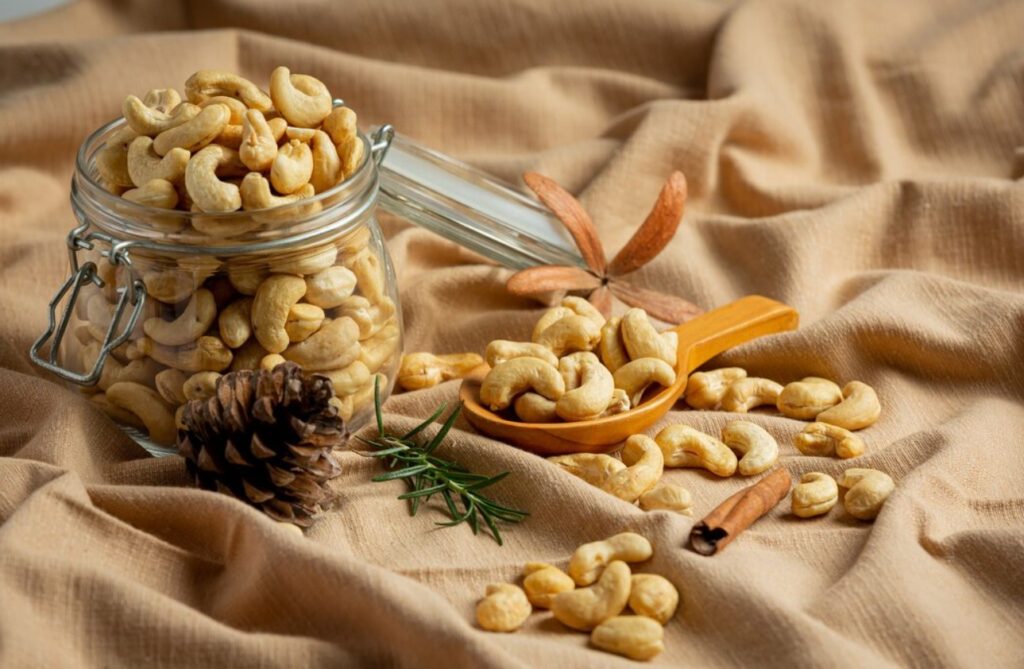Cashews have become a beloved snack worldwide, known for their creamy texture and nutty flavor. Whether tossed into salads, blended into creamy sauces, or enjoyed straight out of the bag, cashews are a versatile and tasty addition to any diet.
But beyond their culinary appeal, cashews often come up in discussions about heart health and cholesterol.
Diet plays a significant role in managing cholesterol levels, which are critical to maintaining a healthy heart. With heart disease being a leading health concern globally, people are increasingly seeking out foods that promote cardiovascular wellness.
This brings us to the big question: Are cashews good for cholesterol? Let’s explore the science, benefits, and ways to incorporate this popular nut into a heart-healthy lifestyle.
What is Cholesterol?
Cholesterol is a waxy, fat-like substance found in your blood and is essential for building cells, producing hormones, and aiding digestion. However, not all cholesterol is created equal, and understanding its types is crucial for maintaining heart health.

- LDL (Low-Density Lipoprotein): Often referred to as “bad cholesterol,” LDL can build up on the walls of your arteries, forming plaques that restrict blood flow. This increases the risk of heart attacks, strokes, and other cardiovascular issues.
- HDL (High-Density Lipoprotein): Known as “good cholesterol,” HDL helps remove excess cholesterol from the bloodstream, transporting it to the liver for disposal. Higher levels of HDL are associated with a lower risk of heart disease.
Maintaining a healthy balance between LDL and HDL is vital for preventing cardiovascular problems. Diet, exercise, and lifestyle choices all play a role in managing cholesterol levels, making it essential to choose heart-healthy foods—like cashews—that support this balance.
Would you like me to expand further on the health implications or link this directly to cashews’ role in cholesterol management?
Nutritional Profile of Cashews
Cashews are not just a delicious snack—they’re also a nutritional powerhouse packed with key nutrients that support overall health, including heart health. Here’s what makes them stand out:
Unsaturated Fats
Cashews are rich in heart-healthy unsaturated fats, particularly monounsaturated and polyunsaturated fats. These fats are known to lower LDL (“bad”) cholesterol levels and increase HDL (“good”) cholesterol, promoting a healthier lipid profile and reducing the risk of cardiovascular diseases.
Fiber
Dietary fiber in cashews helps maintain healthy cholesterol levels by binding to cholesterol in the digestive tract, preventing its absorption. Fiber also supports gut health, which can indirectly benefit heart health.
Vitamins and Minerals
Cashews are a great source of essential nutrients that contribute to heart health:
- Magnesium: Helps regulate blood pressure and supports normal heart function.
- Potassium: Aids in maintaining healthy blood pressure by balancing sodium levels.
- Vitamin E: A powerful antioxidant that protects cells from oxidative stress, reducing inflammation and promoting cardiovascular health.
- Copper: Vital for the production of red blood cells and maintaining blood vessel health.
Plant-Based Protein and Antioxidants
Cashews provide a good amount of plant-based protein, making them an excellent option for vegetarians and vegans. They also contain antioxidants like polyphenols and carotenoids, which fight inflammation and oxidative stress, both of which are risk factors for heart disease.
With this nutrient-rich profile, cashews are more than just a tasty treat—they’re a heart-friendly food that supports cholesterol management and overall cardiovascular health.
Cashews and Cholesterol: The Science
Research has consistently shown that including nuts in your diet can have a positive impact on cholesterol levels, and cashews are no exception. These studies highlight the connection between cashew consumption and improved heart health.
Scientific Studies on Nut Consumption and Cholesterol
Numerous studies have explored the relationship between nut consumption and cholesterol management:
- A 2017 review published in the American Journal of Clinical Nutrition found that eating nuts regularly was associated with lower LDL (“bad”) cholesterol levels and improved HDL (“good”) cholesterol.
- A specific study focusing on cashews, published in Nutrients (2018), revealed that individuals who consumed cashews as part of a balanced diet experienced significant reductions in LDL cholesterol without any adverse effects on body weight.
- Another study highlighted in the Journal of Nutrition demonstrated that nuts, including cashews, can improve the overall lipid profile, particularly by lowering triglycerides, a type of fat in the blood linked to heart disease risk.
How Cashews Impact Cholesterol Levels
The beneficial effects of cashews on cholesterol stem from their unique nutrient composition:

- Rich in Unsaturated Fats: Cashews are high in monounsaturated and polyunsaturated fats, which help reduce LDL cholesterol levels while increasing HDL cholesterol. This dual effect contributes to better heart health.
- Plant Sterols: Cashews contain plant sterols, compounds that naturally block cholesterol absorption in the digestive tract, leading to lower blood cholesterol levels.
- Anti-Inflammatory Effects: Chronic inflammation is a known contributor to heart disease. The antioxidants and healthy fats in cashews combat inflammation, further supporting cardiovascular health.
Incorporating cashews into your diet as part of a heart-healthy eating plan can help regulate cholesterol levels, reduce heart disease risk, and promote overall well-being. However, portion control is key to reaping these benefits without overconsuming calories.
Health Benefits of Cashews

Improved Heart Health
Cashews are a heart-healthy food, thanks to their high content of monounsaturated and polyunsaturated fats. These healthy fats work to reduce LDL cholesterol levels while increasing HDL cholesterol, creating a healthier lipid profile.
Additionally, the magnesium and potassium in cashews help maintain healthy blood pressure, further reducing the risk of heart disease.
Anti-Inflammatory Properties
Cashews are rich in antioxidants, including polyphenols and carotenoids, which help combat oxidative stress and reduce inflammation in the body. Chronic inflammation is a significant contributor to various diseases, including cardiovascular conditions.
By incorporating cashews into your diet, you can help protect your cells from damage and promote overall health.
Source of Plant-Based Protein and Antioxidants
For those looking to reduce their consumption of animal-based proteins, cashews provide a high-quality plant-based protein source. Protein is essential for muscle repair, immune function, and overall growth.
Additionally, the antioxidants in cashews, such as vitamin E and selenium, play a crucial role in neutralizing free radicals and supporting the body’s defense against chronic illnesses.
With their combination of healthy fats, antioxidants, and vital nutrients, cashews are a small yet mighty addition to a balanced, heart-friendly diet.
Are There Any Risks?
While cashews offer many health benefits, it’s important to be mindful of potential downsides to ensure they remain a healthy part of your diet.
Calorie Density
Cashews are calorie-dense, with approximately 155 calories per ounce (about 18 cashews). Eating large portions can lead to overconsumption of calories, which may contribute to weight gain over time.
Since maintaining a healthy weight is crucial for heart health and cholesterol management, it’s essential to enjoy cashews in moderation.
Added Salt in Processed Cashews
Many store-bought cashews are roasted and salted, which can significantly increase their sodium content. High sodium intake is associated with elevated blood pressure, a risk factor for heart disease.
Opting for unsalted or lightly salted cashews is a better choice for supporting heart health.
Tips for Consuming Cashews in Moderation
- Stick to Portion Sizes: Measure out an ounce of cashews (about a small handful) to avoid overindulging.
- Choose Unsalted or Raw Cashews: These options provide all the health benefits of cashews without the added sodium.
- Incorporate Cashews into Meals: Instead of snacking on them alone, use cashews as part of balanced meals, such as sprinkling them over salads, adding them to stir-fries, or blending them into sauces.
By being mindful of portion sizes and choosing minimally processed varieties, you can enjoy the benefits of cashews without the risks.
How to Include Cashews in Your Diet
Cashews are a versatile ingredient that can be easily incorporated into your meals and snacks. Here are some practical tips and delicious ideas to enjoy the heart-healthy benefits of cashews:
Snack Ideas
- Grab-and-Go Handful: A small handful of raw or lightly salted cashews makes for a quick, satisfying snack.
- Trail Mix: Combine cashews with dried fruits, almonds, and a sprinkle of dark chocolate chips for a homemade trail mix.
- Energy Bites: Blend cashews with dates, oats, and a dash of cinnamon to form energy balls for a convenient, nutrient-packed snack.
Incorporate Cashews into Meals
- Smoothies: Blend cashews into your morning smoothie for a creamy texture and a boost of protein and healthy fats.
- Salads: Sprinkle roasted or raw cashews over salads for added crunch and a nutty flavor. They pair particularly well with leafy greens and citrus-based dressings.
- Stir-Fries: Add cashews to stir-fry dishes for a satisfying crunch and a dose of plant-based protein.
- Soups: Use cashews as a thickener in creamy soups like butternut squash or mushroom. Simply blend soaked cashews into the broth for a velvety consistency.
Cashew-Based Recipes
- Cashew Cream Sauce: Blend soaked cashews with garlic, lemon juice, and water to create a dairy-free cream sauce for pasta or vegetables.
- Cashew Butter: Spread homemade or store-bought cashew butter on whole-grain toast or use it as a dip for fruits like apple slices.
- Cashew Milk: Make your own creamy, plant-based milk by blending cashews with water and straining the mixture. It’s a great alternative for coffee, smoothies, or cereal.
By incorporating cashews in these creative ways, you can elevate the flavor and nutritional profile of your meals while supporting your heart health.
FAQs
Are raw or roasted cashews better for cholesterol?
Both raw and roasted cashews can be beneficial for cholesterol, as their heart-healthy nutrients, like unsaturated fats and antioxidants, remain intact regardless of preparation.
However, raw cashews are often preferred because they typically contain no added salt or oils, making them a better choice for managing sodium intake and maintaining healthy cholesterol levels.
If you opt for roasted cashews, choose dry-roasted, unsalted varieties to avoid excess calories and sodium.
How many cashews should you eat daily for heart health?
A moderate serving of about 1 ounce (roughly 18–20 cashews) per day is ideal for most people. This portion provides healthy fats, fiber, and essential nutrients without significantly increasing calorie intake.
Incorporating this amount as part of a balanced diet can help improve your cholesterol levels and support heart health.
Can cashews raise cholesterol if eaten in excess?
While cashews are unlikely to directly raise cholesterol levels, eating them in excessive quantities can lead to overconsumption of calories, which may result in weight gain. Excess weight can negatively impact cholesterol levels and overall heart health.
To enjoy the benefits of cashews without the risks, stick to recommended portion sizes and balance your diet with other nutrient-dense foods.
Conclusion
So, are cashews good for cholesterol? Absolutely! Cashews are a heart-healthy snack packed with nutrients like unsaturated fats, fiber, and antioxidants that support healthy cholesterol levels.
They can help reduce LDL (“bad”) cholesterol, boost HDL (“good”) cholesterol, and promote overall cardiovascular health when included in a balanced diet.
However, as with any food, moderation is key. Cashews are calorie-dense, so it’s important to enjoy them in reasonable portions—about a handful a day is plenty to reap their benefits. Choosing unsalted or minimally processed varieties can further enhance their positive impact on your health.
Incorporating cashews into your diet doesn’t have to be complicated. Whether as a snack, a topping for meals, or an ingredient in creamy recipes, cashews are a versatile and delicious way to support your heart and overall well-being. Pair them with other nutrient-rich foods for a balanced approach to healthy eating.


